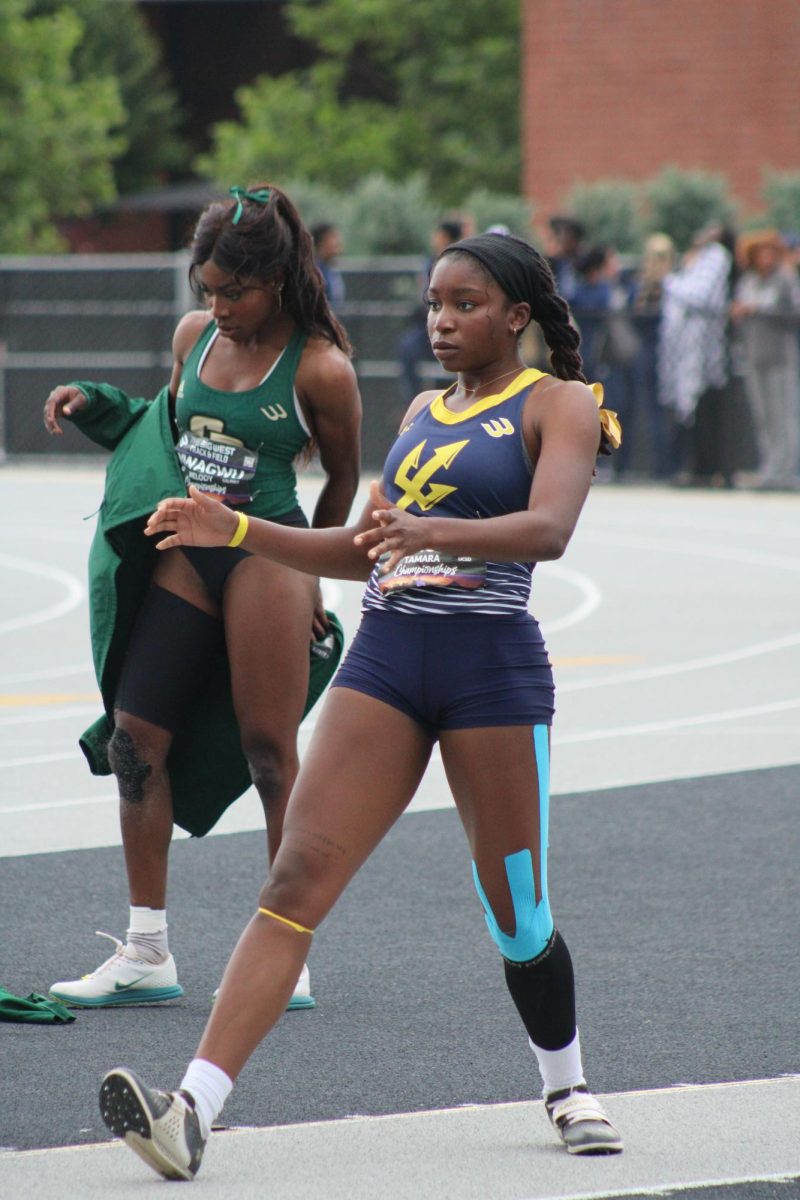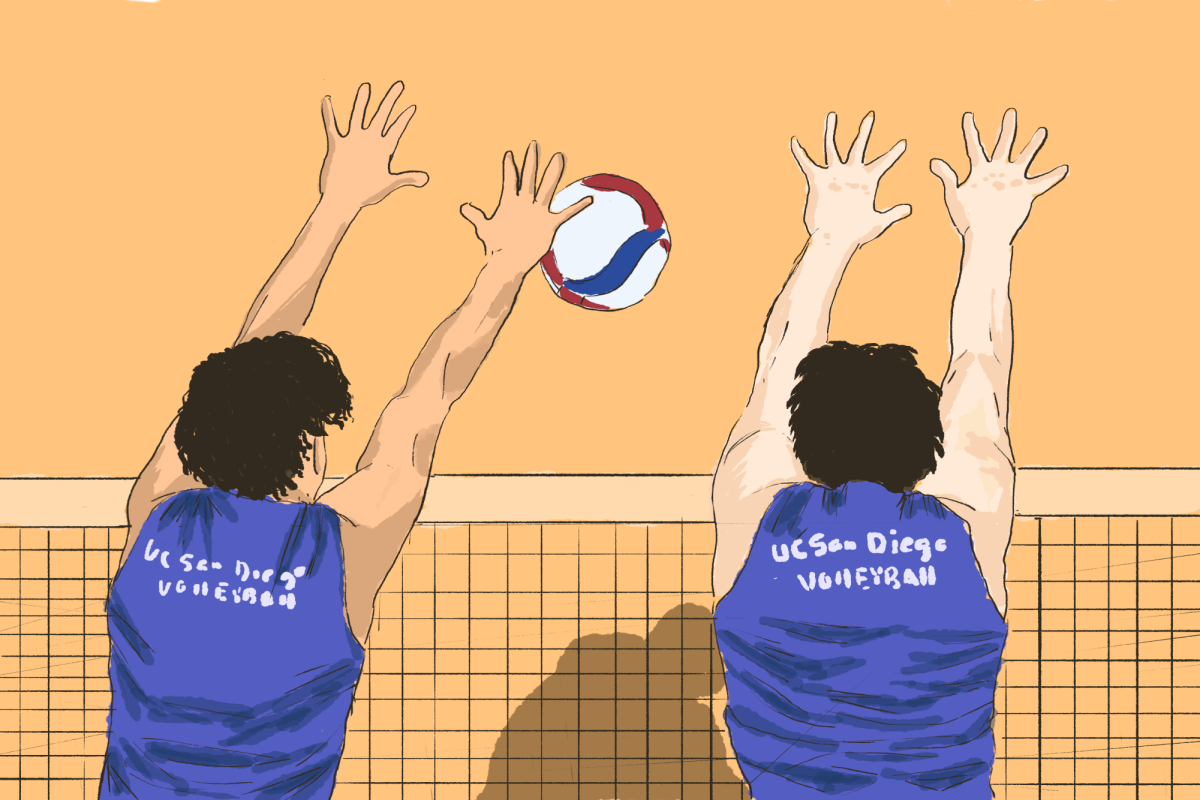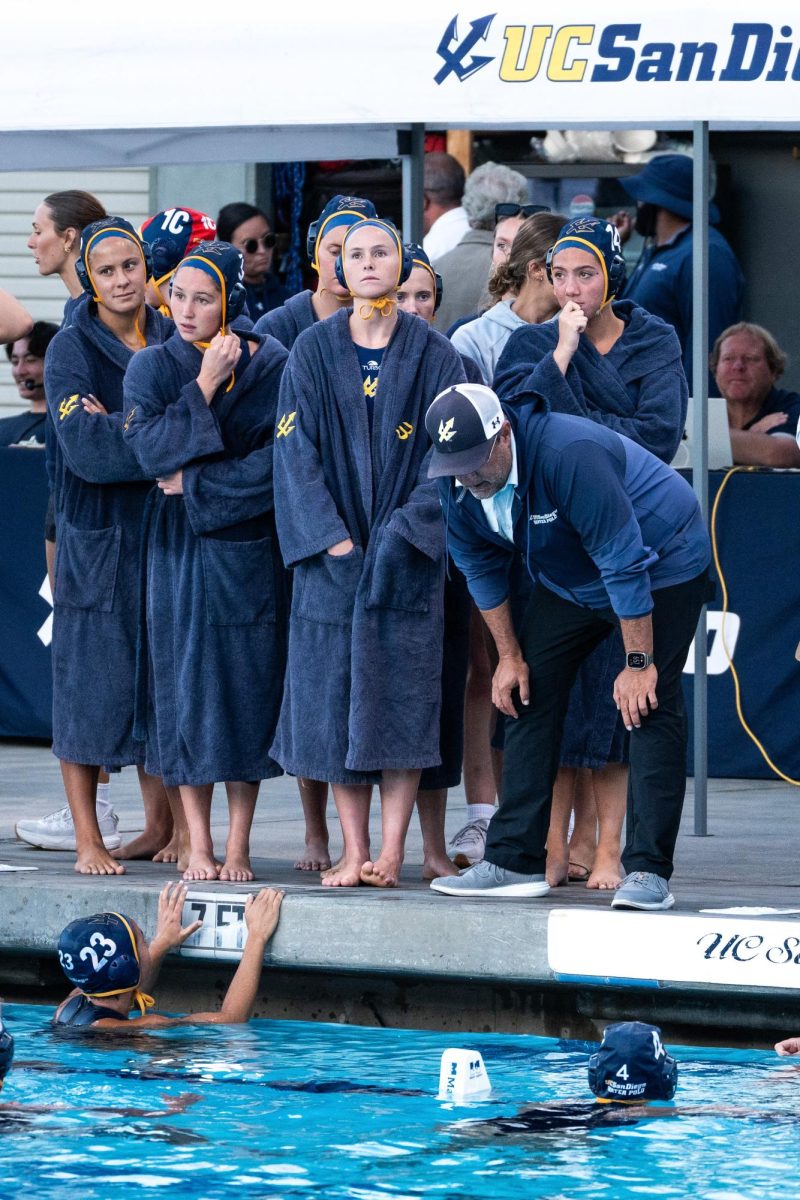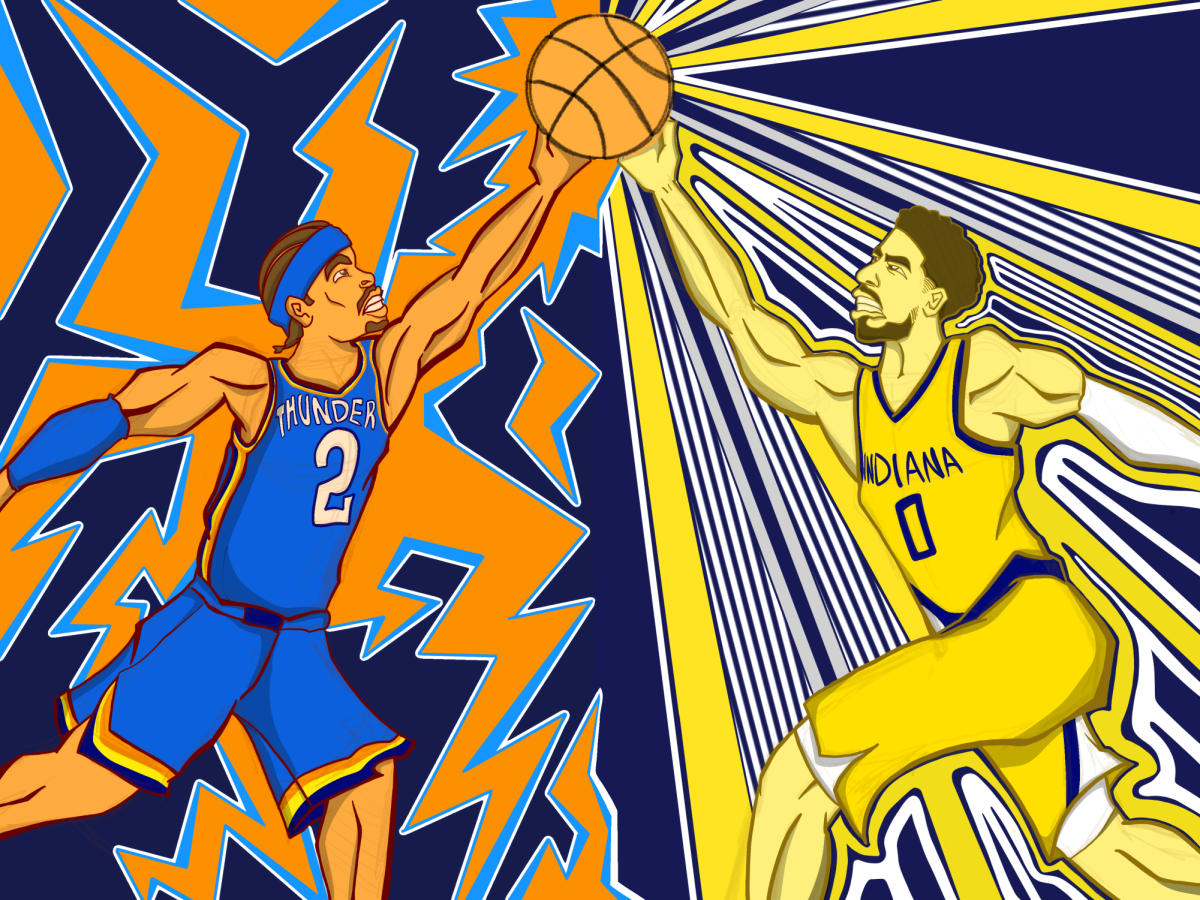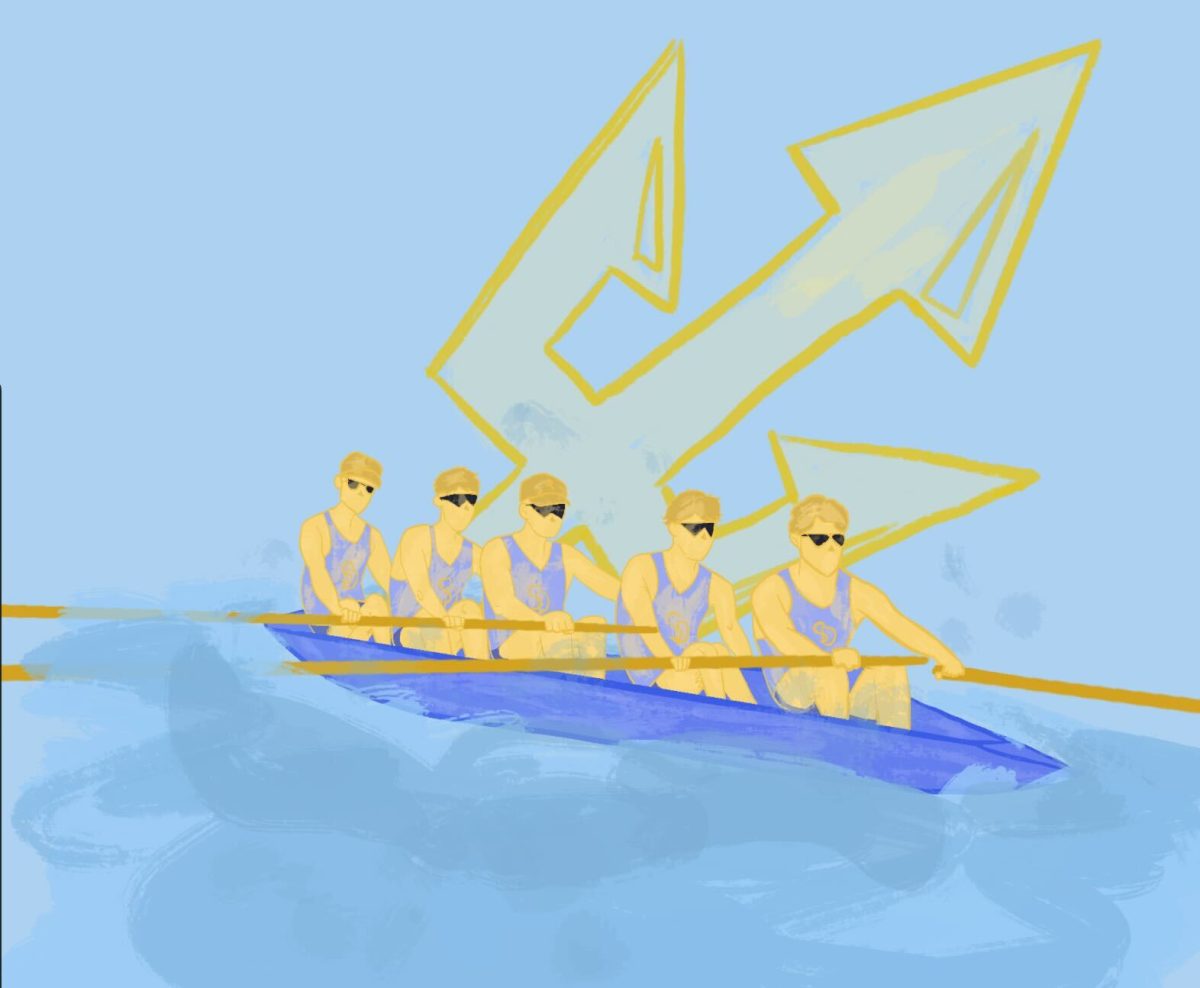The last two years of sports have shown to have been pivotal for the women of the world. From the rising basketball stars in the 2024 WNBA Draft Class to the battle of the best in the 2023 FIFA Women’s World Cup, many would deem these successes as a new peak for women’s sports. However, to women’s sports fans, athletes, and coaches — as well as to any woman in the sports industry — the conversation has always been to elevate women in sports for longer than just a temporary spotlight. In order to achieve this goal, there are a plethora of obstacles that stand in the way, with the most grueling being the simple request for women in sports to be seen as legitimate athletic personnel.
Let us focus on Caitlin Clark, the all-time NCAA Division I leading scorer (between men and women) and star player for the University of Iowa Hawkeyes, as she initiates her very first press run as a member of the Indiana Fever family. The gleaming limelight that shone down on her collegiate career followed her into the WNBA, with massive crowds of reporters, journalists, and media personnel awaiting the rookie.
In the media scrum is Gregg Doyel, a widely-recognized name in the world of Indiana sports serving as a longtime columnist for the Indianapolis Star. He began his conversation with Clark with a hand heart, a celebration the former Iowa player dedicated to her family before every game. However, it was the words exchanged after the reference was acknowledged that surprised and enraged Clark’s fans.
Caitlin Clark: “You like that?” (reference to the hand heart gesture)
Doyel: “I like that you’re here.”
Clark: “Yeah, I do that at my family after every game.”
Doyel: “Start doing it to me and we’ll get along just fine.”
The exchange not only displays Doyel’s appalling lack of professionalism but also the entitlement many male sports consumers feel toward the women in their spaces. This is not the first time men have spoken about women in sports as prospects for a relationship, nor will it be the last. Women in sports are viewed as figures of entertainment or pleasure.
Although this could be argued for all athletes or all public figures, it is the specific dialogue seen in the sports world that reeks of sexism and toxic masculinity. In a male-dominated center like sports, measuring the value of women in the industry through desirability from the male gaze is nothing short of degrading to the athletes, coaches, trainers, media personalities, and other figures who would much rather be known for their work.
If we examine the exchange between Clark and Doyel specifically, it is abundantly clear Doyel’s mind was not set on Clark’s record-breaking season or the collegiate accolades that came with it, nor was it set on Clark’s highly anticipated debut into the WNBA and the path she walked to get there. Doyel’s mind was stuck on pursuing the athlete and expressing his desire for her attention as boldly as possible. To be met with such unwelcomed intentions in a conversation that was meant to uplift Caitlin Clark as a major figure in basketball is not only a heartbreaking ordeal but also nothing short of creepy.
It is known that unlike most top-tier male athletes, who lavish on the riches their paychecks provide, many female athletes — even at the highest levels — struggle to sustain themselves with their pay. In a recent report from FIFPRO (the International Federation of Professional Footballers’ Associations) regarding the players of the 2023 Women’s World Cup, it was reported that only 40% of players considered themselves professional footballers (35% claiming to be amateurs, 16% claiming to be semi-professionals, and 9% unsure of their status). It was also reported that 29% of the players in this tournament were not receiving any sort of financial compensation from their national teams.
The grueling fight for equal pay in women’s soccer, as well as women’s sports in general, depicts the numbers that separate men’s sports from women’s sports. However, it also depicts the struggle it is for women to make a name for themselves with sports and how much these athletes are forced to sacrifice in order to simply take up space in the world of sports.
What many fail to acknowledge is that growing the women’s game is about more than a set of numbers. Yes, it is important to increase viewership, sales, and other quantifiable metrics. However, it is just as important to ensure that women in sports are viewed as reputable figures in sports and not items on the male market, a feat that begins at roots that run far beyond athletics.
From social image to financial disparities, every single obstacle women face in sports is rooted in blatant misogyny. Though each of these struggles is extremely nuanced and cannot be fully encompassed by one word, it is important to note that in a patriarchal society, it is impossible to separate female-exclusive issues in sports from the gender inequality that follows these sports figures around, even in their daily lives.
As sports consumers, it is easy to ignore these issues and maintain the status quo of this male-dominated space. However, maintaining the status quo will only bring about a facade of the comfortability male consumers claim to fight for. True comfortability means protecting all members of the sporting community, regardless of gender. Contrary to popular belief, complete disregard for the patriarchal values upheld in the space will only ensure the downfall of not just the women’s game but sports as a whole.



